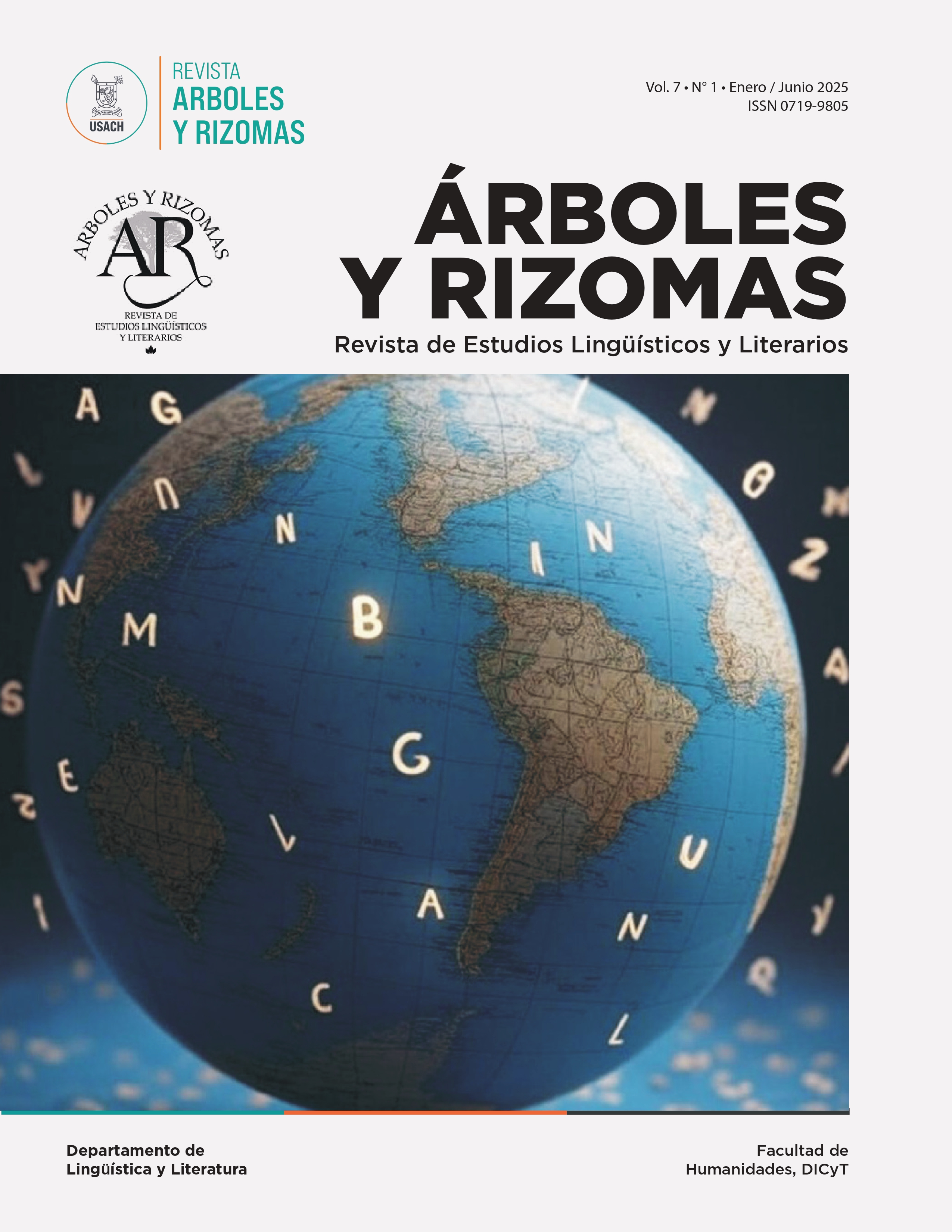On editorial bots, algorithmic discrimination, and critical approaches in (Applied) Linguistics and Literature
DOI:
https://doi.org/10.35588/ayr.v7i1.7414Keywords:
generative artificial intelligence, bots as editors, algorithmic discrimination, English as a lingua francaAbstract
Generative artificial intelligence (AI) is a recurring theme in the recent intellectual landscape, which we have discussed in previous presentations. We try to approach it from references on comprehension and memory in linguistic learning processes and then call on specialized literature. The specialized references allow us to discuss the implications of AI for editorial processes, with the use of bots that can perform editorial tasks such as text revision, and its disadvantages, such as hallucinations and algorithmic biases. We agree that AI cannot replace the human editor because it cannot ethically discern the appropriateness, creativity, and relevance of the voice inscribed in texts. Next, we announce that English as a lingua franca (ELF) is the topic proposed by three Brazilian academic guest editors for this issue’s dossier and give a brief review of ELF in Chile. Finally, we present the papers and note included in the miscellaneous section of this issue.
Downloads
References
Baillie, Ph. (n.d.). Will AI Replace Proofreaders and Editors? 5 Reasons Why It Won’t. Edit Republic.https://editrepublic.com/blog/will-ai-replace-proofreaders-and-editors-5-reasons-why-it-wont/
Barahona, M., Veliz, L., & Darwin, S. (2024). Introduction - Exploring avenues for the transformation of teaching and learning English in Chile. In L. Veliz, M. Barahona, & S. Darwin (Eds.), Critiquing the teaching and learning of English in Chile: Challenges and opportunities for transformative practice (pp. 1-10). Routledge.
Bartra, R. (2007). Antropología del cerebro. La conciencia y los sistemas simbólicos. Fondo de Cultura Económica.
Butts, M. (n.d.). Your Next Editor Won’t Be a Robot. Insight Content Lab.https://insightcontentlab.com/your-next-editor-wont-be-a-robot/
CNN Chile. (28 de mayo de 2025). Entrevista. Raúl Zurita y la inteligencia artificial.https://www.cnnchile.com/cultura/raul-zurita-inteligencia-artificial-si-pudiera-construir-los-mejores-poemas-del-mundo-me-encantaria-leerlos_20250528/
Costa, F. (2021). Tecnoceno. Algoritmos, biohackers y nuevas formas de vida. Penguin Random House.
Del Saz, M. (October 16th, 2023). English pronunciation in Chile under the Lingua Franca Core, [Ponencia]. II Congreso Enseñanza, aprendizaje y uso de lenguas en el Hemisferio Sur y países “en vías de desarrollo” en el siglo XXI. Universidad de Chile, Santiago, Chile.https://www.researchgate.net/publication/377363747_English_pronunciation_in_Chile_under_the_Lingua_Franca_Core
Dehaene, S. (2010). Reading in the brain. The new science of how we read. Penguin.
Doskaliuk, B., Zimba, O., Yessirkepov, M., Klishch, I., & Yatsyshyn, R. (2025). Artificial Intelligence in Peer Review: Enhancing Efficiency While Preserving Integrity. Journal of Korean medical science, 40(7), e92.https://doi.org/10.3346/jkms.2025.40.e92
Farías, M. (2023). Desafíos de la inteligencia artificial a la honestidad intelectual: Challenges of artificial intelligence to intelectual fairness. Árboles y Rizomas, 5(1), i-v.https://www.revistas.usach.cl/ojs/index.php/rizomas/article/view/6203
Farías, M. (2024). La labor editorial en marcos glocales: vicisitudes y logros. Árboles y Rizomas, 6(2), i-xvii. https://doi.org/10.35588/ayr.v6i2.7073
Feldman, J. (2006). From molecule to metaphor. A neural theory of language. MIT Press.
Harari, Y. (2024). Nexus. Una breve historia de las redes de información desde la Edad de Piedra hasta la IA. Penguin Random House.
IBM. (September 1, 2023). What are AI hallucinations? https://www.ibm.com/think/topics/ai-hallucinations
Iturmendi-Rubia, J. M. (2023). Algorithmic discrimination and its impact on human dignity and human rights. Special reference to immigrants. Deusto Journal of Human Rights, (12), 257-284. https://doi.org/10.18543/djhr.2910
Kuo, R. (8 de marzo de 2023). Noam Chomsky: La falsa promesa de ChatGPT. The New York Times. https://www.nytimes.com/2023/03/08/opinion/noam-chomsky-chatgpt-ai.html
McKenna, J. (May 13, 2025). Open Science Principles Can Improve Artificial Intelligence. MDPI Blog.https://blog.mdpi.com/2025/05/13/open-science-principles-ai/
Metz, C., & Weise, K. (May 6, 2025). AI Is Getting More Powerful, but Its Hallucinations Are Getting Worse. New York Times. https://www.nytimes.com/2025/05/05/technology/ai-hallucinations-chatgpt-google.html
Navarro, F., Lillis, T., Donahue, T., Curry, M. J., Ávila Reyes, N., Gustafsson, M., Zavala, V., Lauría, D., Lukin, A., McKinney, C., Feng, H., & Motta-Roth, D. (2022). Rethinking English as a lingua franca in scientific-academic contexts. A position statement. Journal of English for Research Publication Purposes, 3(1), 143-153.https://benjamins.com/catalog/jerpp.21012.nav
Rodríguez, C. (2023). Percepciones y actitudes hacia la enseñanza de la pronunciación inglesa en programas de formación de profesores de inglés en Chile. Lenguas Modernas, (60),117–133. https://lenguasmodernas.uchile.cl/index.php/LM/article/view/69993
Rumelhart, D. (1980). Schemata: The Building Blocks of Cognition. In R. Spiro, B. Bruce and W. Brewer, (Eds.). Theoretical Issues in Reading Comprehension (pp. 33-58). Lawrence Erlbaum.
Universidad de Chile. (2024). Para un mundo de multiculturalidad digital aumentan los docentes especializados en el uso de inglés como lengua franca en la educación superior. https://uchile.cl/noticias/222371/por-que-el-ingles-es-lengua-franca
Weaver, A. (May 25, 2023). Why you can’t replace human insight: The importance of editorial skills in the AI era. Writer’s room. https://writer.com/blog/editorial-skills-and-ai/
Wolf, M. (2008). Proust and the squid. The story and science of the reading brain. Harper Perennial.
Zielinski, C., Winker, M., Aggarwal, R., Ferris, L., Heinemann, M., Lapeña Jr., J. F., … Abibzadeh, F. (2023). Chatbots, Generative AI, and Scholarly Manuscripts. Philippine Journal of Pathology, 8(1), 6-9. https://doi.org/10.21141/PJP.2023.08
Downloads
Submitted
2025-06-08Published
Issue
Section
License
Copyright (c) 2025 Miguel Farías

This work is licensed under a Creative Commons Attribution 4.0 International License.






